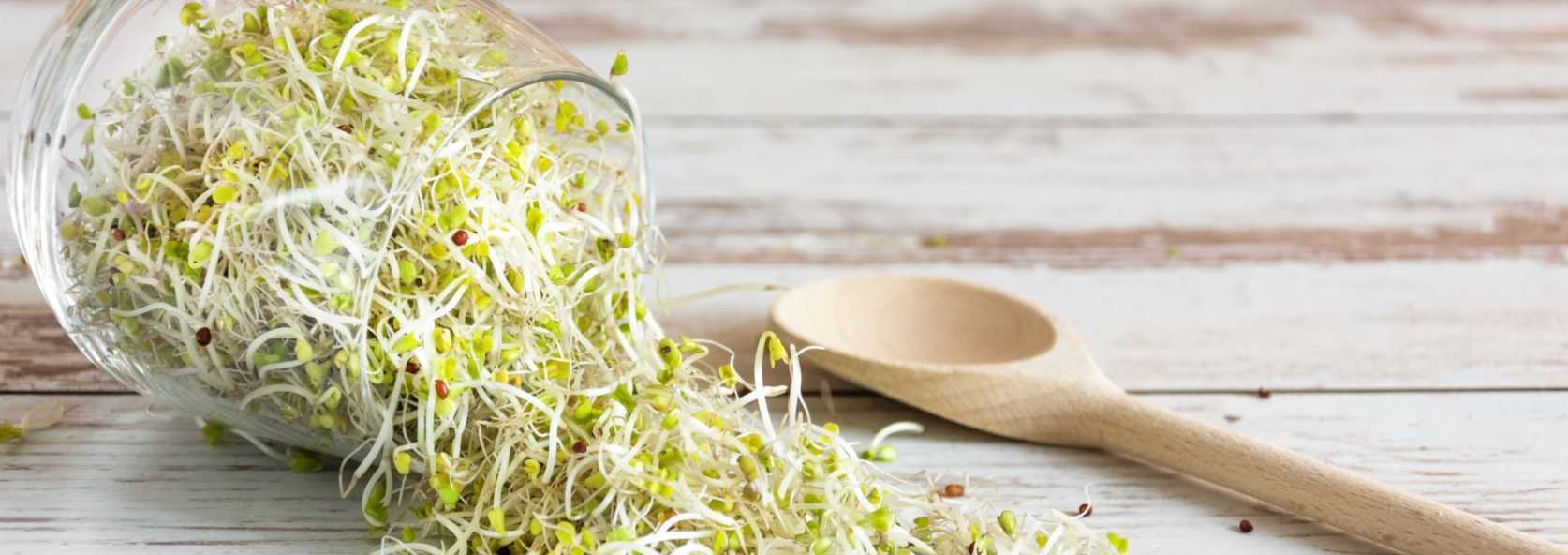Sprouts vs Microgreen Seeds
by Ashleigh Smith
Are Sprouting and Microgreen Seeds the Same?
Many people wonder, are sprouting and microgreen seeds the same? They are. In fact, the seed for any particular variety is the same whether it is specified for gardens, sprouting, microgreens, or cover crops. For example, let's take a look at Daikon Radish seeds.
Daikon Radishes can be grown as a vegetable, sprout, microgreen, or cover crop. However, this does not mean the seeds are different from each other. A Daikon Radish microgreen seed could also be used in the garden to grow mature vegetables. Or, it could be used for sprouting or cover crops. While your seeds may be purchased with a specific use printed on the package, this is only to provide instructions related to your intended use.
Seeds labeled as Microgreens
Seeds specified for use as microgreens by True Leaf Market are safe for consumption at the microgreen stage. Microgreens are the stage of growth after germination and emergence have occurred when the first set of leaves (cotyledons) develop. These are the young, tender seedlings known for their high nutrient density and health benefits. They are most often eaten in salads, soups, smoothies, or in place of traditional leafy greens.
Not all plant foliage is edible, making it important to know if your plants are appropriate for growth as microgreens. For example, tomatoes are a delicious fruit. However, their foliage is toxic when consumed in large amounts as it is a member of the nightshade family. You won’t see tomato seeds advertised as microgreens by True Leaf Market, as we are careful to only list seeds with appropriate uses that have been widely accepted.

Seeds Labeled for Sprouting
Most seeds that are grown as microgreens are also grown as sprouts. If not, it is usually because of taste preferences. Some seeds, while edible, may not taste great as sprouts but are great as microgreens or vice versa. Another quality that may make a seed undesirable as a sprout vs a microgreen is its size. Basil is commonly grown for its peppery-tasting leaves; however, its seed is very small, making it less attractive as a sprout. Again, a seed labeled for sprouting can also be grown to its mature form. Sprouting Hard Red Winter Wheat can also be grown in its microgreen form as wheatgrass, grown as a mature grain and cover crop, or ground into flour and cereal.
It can be beneficial to become familiar with what seeds have multiple uses. Use your extra garden seeds for sprouting or microgreens if appropriate. For detailed instructions for our most commonly sprouted seeds, check out our sprouting guide. If you think you may be interested in learning how to sprout seeds, we recommend starting with an introductory kit. Our Sprouting Jar or Basic Sprouting Kits are great options for first-time sprouters.
Many people prefer to use organic seeds for sprouting or growing microgreens, though non-organics can also be used. Here at True Leaf Market, we make the extra effort to test our seeds to ensure they are safe for eating raw as sprouts and microgreens. Learn more in the article “Does True Leaf Market Test Their Seeds?”
Organic vs Non-Organic Seeds
While sprouting, microgreen, vegetable, and cover crop seeds of the same variety are the same seeds, there is a difference between organic and standard non-organic seeds. Organic Seeds are grown following very specific guidelines about what can and can’t be used on the crops. Organic practices tend to focus on sustainable methods that help preserve soil health over several years and decades. It may take 5-7 years for a farm to be certified for selling with an organic label while using sustainable practices. You can find a wide array of organic flower, vegetable, sprouting, and microgreen seed options with True Leaf Market.
Non-Organic seed is grown using traditional farming practices. Any given variety of seeds may be available as organic or non-organic seeds. Either will produce the same mature plant. Some people just prefer some growing practices to be used over others.
